Controlling Your Nerves When Presenting
During a session at Madison’s DreamBank this week, a group of us gathered to talk about what it looks like to have presentation prowess. The most common concern people want to talk about when I lead sessions like this are related to, “I get so nervous. What can I do to control my nerves when I present?” Let’s discuss somethings you can do to harness your anxiety when speaking to groups.
Whether the group is 2 people or 2000, all of us get nervous, even those of us who speak professionally. What can we do about our nervousness? There are some simple techniques that will let you relax and own the room. Let’s explore what seasoned speakers do to control their nerves before an event.
Control Butterflies
For those of you who get butterflies in their stomach before speaking, eat something small about an hour before you present and avoid caffeine right before you talk. A granola bar or piece of fruit will keep your stomach acid busy so you feel less like you’re going to be sick. Plus it keeps your stomach from growling, but it doesn’t leave you paralyzed by a full-meal coma.
Eliminate Shakiness
Our bodies feel the stress of speaking and it’s like the Dutch boy at the dam. You mentally block one form of nervousness, but it’s bound to spout out somewhere else, like through shaky hands. What can you do? Shake your hands and limbs vigorously, like you are drying your hands without a towel. Do the same for your legs. This drives blood and oxygen to your extremities which helps them relax.
Breathe Deeply
Your body is shaking because the muscles are tightening and aren’t getting enough oxygen. When you breathe, stand up, put your hand on your stomach and breathe in for a count of 3-5. Pause. Then release, counting to 4-5. Try to take longer to breath out. Do this five or six times. Your stomach should move when you inhale. If it doesn’t, you’re not really taking a deep breath.
In addition, when you breath deeply, and your exhale count is longer than your inhale, studies show you can significantly reduce your blood pressure, which then let’s your body know it no longer has a reason to panic.
Reframe Your Perception
We often get nervous because we think others are judging us when we present. I have found reframing that expectation to what the audience really wants from me helps tremendously. Instead of assuming the audience is looking for all my goof ups, I assume the audience wants me to succeed. They didn’t arrive at the meeting or event thinking, “Wait and watch – Sarah’s going to goof this up.”
Instead they arrived looking forward to what I am going to talk about. They are anticipating a successful presentation, and so should you. Remembering people want you to succeed will help you relax and be more conversational as you talk with the room.
Smile
Even if you are nervous, a smile to the group shows attendee you are confident. That confidence then is boosted when people in the room smile back at you. Before you even start talking, look up, smile and make eye contact with a few folks in the room. You’ll be amazed at what that can do to start you off well.
Know the First Two Minutes Cold
Last, being solidly prepared, especially for your first two minutes, will help you concentrate on doing all the other things that help you control your nerves. If you are busy thinking about what you will say as you open your presentation, you’ll focus on that instead of focusing on calming your nerves.
These quick, simple tricks can help you survive, and possibly thrive, at your next presentation. We all get nervous and that’s okay. It’s what we do with our nervousness that signals our presentation prowess to others.
Keynote speaker, trainer, and consultant, Sarah Gibson, helps organizations leverage the power of communication, teamwork and diversity to improve engagement and transform teams. To buy her book or inquire about her speaking programs, please visit www.sarahjgibson.com.



